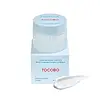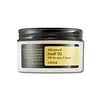What's inside
What's inside
 Key Ingredients
Key Ingredients

 Benefits
Benefits

 Concerns
Concerns

 Ingredients Side-by-side
Ingredients Side-by-side

Water
Skin ConditioningGlycerin
HumectantSqualane
EmollientCoco-Caprylate/Caprate
EmollientPolyglyceryl-3 Methylglucose Distearate
EmulsifyingCaprylic/Capric Triglyceride
MaskingPentylene Glycol
Skin ConditioningPropanediol
SolventPolyglyceryl-3 Distearate
EmulsifyingCyclohexasiloxane
Emollient1,2-Hexanediol
Skin ConditioningButylene Glycol
HumectantDiphenyl Dimethicone
EmollientDiphenylsiloxy Phenyl Trimethicone
Skin ConditioningCetearyl Olivate
Sorbitan Olivate
EmulsifyingHydrogenated Coco-Glycerides
EmollientCetearyl Alcohol
EmollientGlyceryl Stearate
EmollientPolymethylsilsesquioxane
Glucose
HumectantChlorella Vulgaris Extract
Skin ConditioningButyrospermum Parkii Butter
Skin ConditioningHydroxyacetophenone
AntioxidantSodium Polyacrylate Starch
AbsorbentAcrylates/C10-30 Alkyl Acrylate Crosspolymer
Emulsion StabilisingFructose
HumectantFructooligosaccharides
HumectantTromethamine
BufferingParfum
MaskingGlyceryl Stearate Citrate
EmollientPanthenol
Skin ConditioningHydroxyethyl Acrylate/Sodium Acryloyldimethyl Taurate Copolymer
Emulsion StabilisingHydrogenated Lecithin
EmulsifyingSodium Phytate
Xanthan Gum
EmulsifyingStearic Acid
CleansingHyaluronic Acid
HumectantEthylhexylglycerin
Skin ConditioningBeta-Glucan
Skin ConditioningCeramide NP
Skin ConditioningHydrolyzed Hyaluronic Acid
HumectantCeramide Ns
Skin ConditioningCholesterol
EmollientPhytosphingosine
Skin ConditioningSodium Hyaluronate
HumectantCeramide AP
Skin ConditioningCeramide As
Skin ConditioningCeramide EOP
Skin ConditioningWater, Glycerin, Squalane, Coco-Caprylate/Caprate, Polyglyceryl-3 Methylglucose Distearate, Caprylic/Capric Triglyceride, Pentylene Glycol, Propanediol, Polyglyceryl-3 Distearate, Cyclohexasiloxane, 1,2-Hexanediol, Butylene Glycol, Diphenyl Dimethicone, Diphenylsiloxy Phenyl Trimethicone, Cetearyl Olivate, Sorbitan Olivate, Hydrogenated Coco-Glycerides, Cetearyl Alcohol, Glyceryl Stearate, Polymethylsilsesquioxane, Glucose, Chlorella Vulgaris Extract, Butyrospermum Parkii Butter, Hydroxyacetophenone, Sodium Polyacrylate Starch, Acrylates/C10-30 Alkyl Acrylate Crosspolymer, Fructose, Fructooligosaccharides, Tromethamine, Parfum, Glyceryl Stearate Citrate, Panthenol, Hydroxyethyl Acrylate/Sodium Acryloyldimethyl Taurate Copolymer, Hydrogenated Lecithin, Sodium Phytate, Xanthan Gum, Stearic Acid, Hyaluronic Acid, Ethylhexylglycerin, Beta-Glucan, Ceramide NP, Hydrolyzed Hyaluronic Acid, Ceramide Ns, Cholesterol, Phytosphingosine, Sodium Hyaluronate, Ceramide AP, Ceramide As, Ceramide EOP
Snail Secretion Filtrate
Skin ConditioningBetaine
HumectantCaprylic/Capric Triglyceride
MaskingButylene Glycol
HumectantCetearyl Olivate
Sorbitan Olivate
EmulsifyingCetearyl Alcohol
EmollientCarbomer
Emulsion StabilisingEthyl Hexanediol
SolventPhenoxyethanol
PreservativeArginine
MaskingDimethicone
EmollientSodium Polyacrylate
AbsorbentSodium Hyaluronate
HumectantAllantoin
Skin ConditioningPalmitic Acid
EmollientPanthenol
Skin ConditioningXanthan Gum
EmulsifyingStearic Acid
CleansingAdenosine
Skin ConditioningWater
Skin ConditioningMyristic Acid
CleansingSnail Secretion Filtrate, Betaine, Caprylic/Capric Triglyceride, Butylene Glycol, Cetearyl Olivate, Sorbitan Olivate, Cetearyl Alcohol, Carbomer, Ethyl Hexanediol, Phenoxyethanol, Arginine, Dimethicone, Sodium Polyacrylate, Sodium Hyaluronate, Allantoin, Palmitic Acid, Panthenol, Xanthan Gum, Stearic Acid, Adenosine, Water, Myristic Acid
 Reviews
Reviews

Ingredients Explained
These ingredients are found in both products.
Ingredients higher up in an ingredient list are typically present in a larger amount.
Butylene Glycol (or BG) is used within cosmetic products for a few different reasons:
Overall, Butylene Glycol is a safe and well-rounded ingredient that works well with other ingredients.
Though this ingredient works well with most skin types, some people with sensitive skin may experience a reaction such as allergic rashes, closed comedones, or itchiness.
Learn more about Butylene GlycolThis ingredient is an emollient, solvent, and texture enhancer. It is considered a skin-softener by helping the skin prevent moisture loss.
It helps thicken a product's formula and makes it easier to spread by dissolving clumping compounds.
Caprylic Triglyceride is made by combining glycerin with coconut oil, forming a clear liquid.
While there is an assumption Caprylic Triglyceride can clog pores due to it being derived from coconut oil, there is no research supporting this.
Learn more about Caprylic/Capric TriglycerideCetearyl alcohol is a mixture of two fatty alcohols: cetyl alcohol and stearyl alcohol. It is mainly used as an emulsifier. Emulsifiers help prevent the separation of oils and products. Due to its composition, it can also be used to thicken a product or help create foam.
Cetearyl alcohol is an emollient. Emollients help soothe and hydrate the skin by trapping moisture.
Studies show Cetearyl alcohol is non-toxic and non-irritating. The FDA allows products labeled "alcohol-free" to have fatty alcohols.
This ingredient is usually derived from plant oils such as palm, vegetable, or coconut oils. There is debate on whether this ingredient will cause acne.
Due to the fatty acid base, this ingredient may not be Malassezia folliculitis safe.
Learn more about Cetearyl AlcoholCetearyl Olivate is an emulsifier and texture enhancer. It is derived from the fatty acids of olive oil and Cetearyl alcohol, and is biodegradable.
As an emulsifier, it is used to prevent oils and waters from separating. It can also
Manufacturers use the name Olivem 1000. This ingredient has been found to preserve the natural microbiome of skin. Having a healthy microbiome helps keep our skin healthy and protects against harmful bacteria. This ingredient is grouped with Sorbitan Olivate under the name Olivem 1000.
Learn more about Cetearyl OlivatePanthenol is a common ingredient that helps hydrate and soothe the skin. It is found naturally in our skin and hair.
There are two forms of panthenol: D and L.
D-panthenol is also known as dexpanthenol. Most cosmetics use dexpanthenol or a mixture of D and L-panthenol.
Panthenol is famous due to its ability to go deeper into the skin's layers. Using this ingredient has numerous pros (and no cons):
Like hyaluronic acid, panthenol is a humectant. Humectants are able to bind and hold large amounts of water to keep skin hydrated.
This ingredient works well for wound healing. It works by increasing tissue in the wound and helps close open wounds.
Once oxidized, panthenol converts to pantothenic acid. Panthothenic acid is found in all living cells.
This ingredient is also referred to as pro-vitamin B5.
Learn more about PanthenolSodium Hyaluronate is hyaluronic acid's salt form. It is commonly derived from the sodium salt of hyaluronic acid.
Like hyaluronic acid, it is great at holding water and acts as a humectant. This makes it a great skin hydrating ingredient.
Sodium Hyaluronate is naturally occurring in our bodies and is mostly found in eye fluid and joints.
These are some other common types of Hyaluronic Acid:
Learn more about Sodium HyaluronateSorbitan Olivate is created from the fatty acids in olive oil and sorbitol.
This ingredient is an oil in water emulsifier. It helps stabilize a product by preventing oils and waters from separating. Sorbitan Olivate also helps hydrate the skin.
Manufacturers sell sorbitan olivate under the name OliveM 1000. OliveM 1000 a multifunctional ingredient. It is self-emulsifying. According to a manufacturer, OliveM 1000 does not disrupt natural skin biome.
Due to its olive oil base, this ingredient may not be fungal-acne safe.
Learn more about Sorbitan OlivateStearic Acid is a fatty acid. It is an emollient, emulsifier, and texture enhancer.
As an emollient, stearic acid helps soften skin. It aids the skin's protective barrier by preventing water loss. It also provides a gentle cleansing effect without stripping away natural oils.
Stearic acid may also be used to enhance the texture of products. It can add volume and stabilize ingredients such as water and oil. This can help water and oil ingredients from separating.
Sources of stearic acid include animal or vegetable fats/oils such as coconut or shea. It can be naturally found in butter, cocoa butter, shea butter, vegetable fats, and animal tallow.
This ingredient may not be Malassezia folliculitis, or fungal-acne safe.
Learn more about Stearic AcidWater. It's the most common cosmetic ingredient of all. You'll usually see it at the top of ingredient lists, meaning that it makes up the largest part of the product.
So why is it so popular? Water most often acts as a solvent - this means that it helps dissolve other ingredients into the formulation.
You'll also recognize water as that liquid we all need to stay alive. If you see this, drink a glass of water. Stay hydrated!
Learn more about WaterXanthan gum is used as a stabilizer and thickener within cosmetic products. It helps give products a sticky, thick feeling - preventing them from being too runny.
On the technical side of things, xanthan gum is a polysaccharide - a combination consisting of multiple sugar molecules bonded together.
Xanthan gum is a pretty common and great ingredient. It is a natural, non-toxic, non-irritating ingredient that is also commonly used in food products.
Learn more about Xanthan Gum